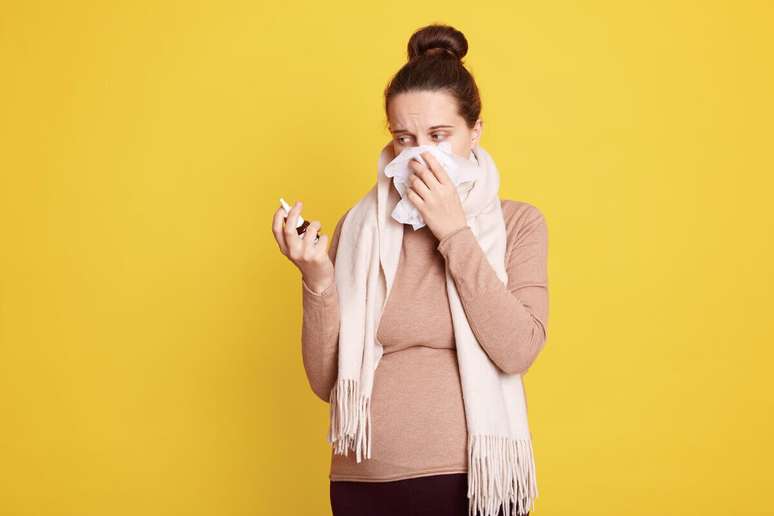The doctor explains how important some measures are to ensure health during this time of year
As winter approaches, which begins on June 21 in the Southern Hemisphere, temperatures drop in several regions of Brazil. With the cold, the risks of respiratory diseases increase, such as flu, colds, pneumonia, COVID-19 and viruses. This is because staying indoors to stay warm can encourage the spread of these diseases.
According to immunologist and pulmonologist Larissa Cau Carlet, member of the Doctoralia health platform, some characteristic symptoms of menstrual diseases should be observed carefully, especially if you already have a pre-existing pathology.
“If you already suffer from rhinitis and sneeze every day, it is important to be aware of additional symptoms, such as fever, heachache and in the body, colored nasal discharge and cough. If these symptoms appear, it is advisable to consult a doctor to distinguish between flu, sinusitis or something more serious, “he says.

Vaccines indicated to prevent respiratory diseases
The expert underlines that the vaccines recommended to prevent respiratory complications in winter include the anti-flu (flu) and the pneumococcal vaccine, which protects against complications related to bacterial pneumonia.
“The flu vaccine is recommended for people over six months of age and with the exception of those who have specific medical contraindications. But there is also Vaccine against the respiratory syncytial virus, new on the market and particularly suitable for the elderly. However, it is important to consult a doctor to determine whether the vaccine is suitable for each individual,” says the immunologist.
Treatment to prevent allergic attacks
Larissa Cau Carlet says respiratory allergy sufferers and asthmatics can prevent attacks in the winter by avoiding exposure to known allergens, such as dust, mold and animal dander. Additionally, it is important to keep your home clean and well ventilated and take prescribed medications as recommended by your doctor. Taking care of bedding and stored clothing is essential, as they can contain mold, dust mites and trigger fits if they are not washed before use.
“The populations most vulnerable to winter include the elderly, young children, people with chronic conditions such as asthma, COPD (chronic obstructive pulmonary disease), heart failure and diabetesand those with compromised immune systems. To increase immunity and prevent respiratory diseases, it is important to maintain a healthy lifestyle, which includes a balanced diet, regular physical activity, adequate sleep and stress reduction”, concludes the professional.
By Luiza Fidelis
Source: Terra
Ben Stock is a lifestyle journalist and author at Gossipify. He writes about topics such as health, wellness, travel, food and home decor. He provides practical advice and inspiration to improve well-being, keeps readers up to date with latest lifestyle news and trends, known for his engaging writing style, in-depth analysis and unique perspectives.









